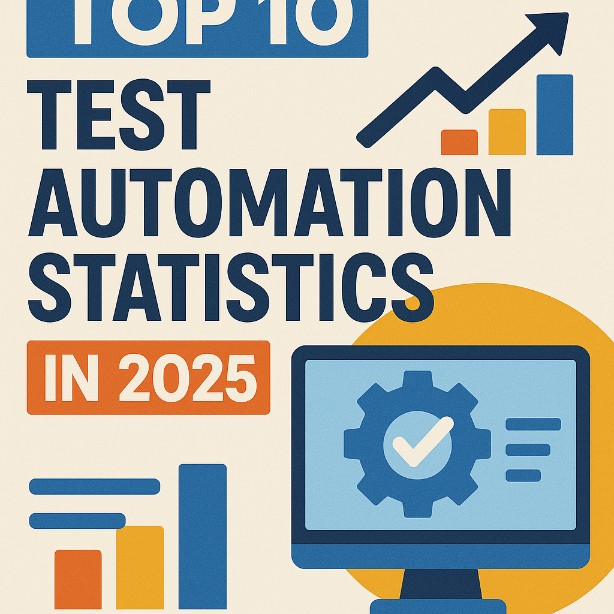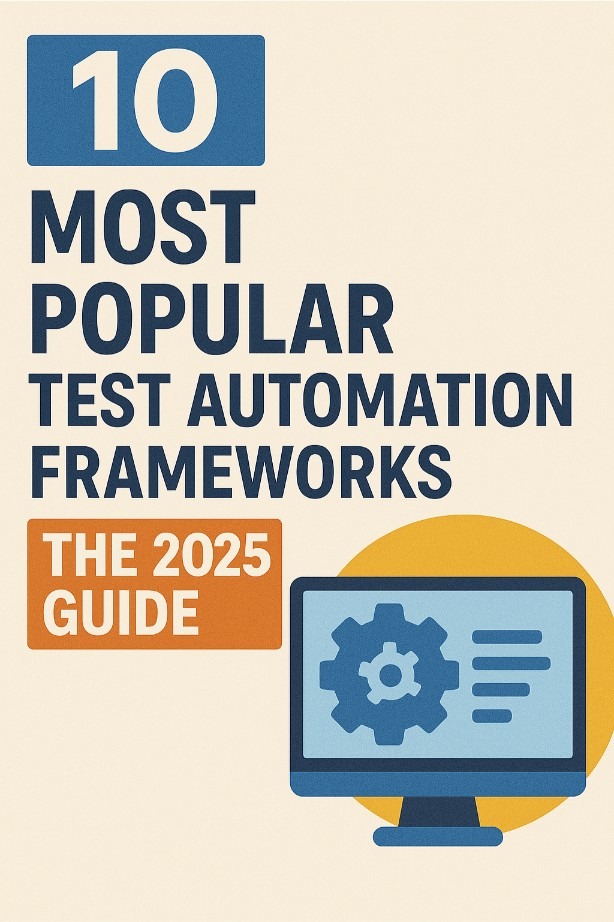When it comes to cybersecurity, staying ahead of potential threats is critical. Security Information and Event Management (SIEM) tools are designed to help businesses do just that by offering real-time monitoring, analysis, and response to potential security incidents. These tools can collect data from various sources, identify suspicious patterns, and even automate responses to security threats.
For non-technical business owners, SIEM tools may seem complex, but their value is clear. These systems help businesses safeguard sensitive information, comply with regulations, and avoid costly breaches. For software engineers, product owners, and DevOps teams, SIEM tools provide a layer of security integration within the development lifecycle.
Is Your Infrastructure Ready for Global Traffic Spikes?
Unexpected load surges can disrupt your services. With LoadFocus’s cutting-edge Load Testing solutions, simulate real-world traffic from multiple global locations in a single test. Our advanced engine dynamically upscales and downscales virtual users in real time, delivering comprehensive reports that empower you to identify and resolve performance bottlenecks before they affect your users.
In this article, we’ll dive into the 10 Best SIEM Tools of 2025 that can bolster your organization’s security posture, moving from introductory tools to more advanced, enterprise-grade solutions.
Quick Overview: Best SIEM Tools 2025
- Splunk – Enterprise-grade SIEM for robust data collection and real-time monitoring.
- LoadFocus – Cloud-based monitoring and load testing, ideal for small to mid-sized businesses.
- IBM QRadar – AI-powered SIEM with advanced threat detection and response.
- LogRhythm – Integrated threat detection and response with real-time security insights.
- Securonix – Cloud-native SIEM using behavioral analytics and machine learning.
- Microsoft Sentinel – AI-driven, Azure-integrated SIEM for real-time threat intelligence.
- SolarWinds Security Event Manager – Lightweight, affordable SIEM for SMBs.
- AlienVault OSSIM – Open-source SIEM with asset discovery and intrusion detection.
- Rapid7 InsightIDR – Proactive threat detection and incident response.
- Arcsight Enterprise Security Manager – Scalable SIEM with advanced analytics for large enterprises.
What is a SIEM Tool?
A SIEM (Security Information and Event Management) tool is designed to collect, analyze, and respond to security events within an organization. It aggregates data from network devices, servers, databases, and other IT infrastructure, allowing teams to monitor for unusual activity and potential security threats in real time.
Why Does Your Business Need a SIEM?
Regardless of your organization’s size, a SIEM tool can be vital for protecting sensitive data, ensuring compliance with security regulations, and enabling rapid detection and response to cyber threats. For smaller businesses, these tools can be a way to simplify and automate security processes, while for larger organizations, they provide necessary insights into complex environments.
Think your website can handle a traffic spike?
Fair enough, but why leave it to chance? Uncover your website’s true limits with LoadFocus’s cloud-based Load Testing for Web Apps, Websites, and APIs. Avoid the risk of costly downtimes and missed opportunities—find out before your users do!
The Best SIEM Tools in 2025
1. Splunk
Category: Enterprise SIEM
Splunk is a widely adopted platform known for its robust data collection, visualization, and real-time monitoring capabilities. It enables businesses to detect threats, manage logs, and secure environments across cloud, hybrid, and on-premise setups.
- Key Features: Real-time event detection, machine learning analytics, custom dashboards.
- Best For: Large enterprises with complex environments.
2. LoadFocus
Category: Cloud-Based Security Testing
LoadFocus offers a full suite of monitoring and load testing services, which can complement SIEM tools to stress test systems under potential attack scenarios. Its intuitive UI and integration capabilities make it a top choice for mid-sized businesses.
- Key Features: Cloud-based load testing, API monitoring, page speed insights.
- Best For: Businesses looking for an all-in-one monitoring solution that includes security.
3. IBM QRadar
Category: AI-Powered SIEM
IBM QRadar uses AI and machine learning to help teams identify, analyze, and respond to security incidents faster. It’s known for its advanced threat detection, cloud support, and ability to integrate with existing security tools.
- Key Features: AI-driven threat detection, automated incident response, cloud integrations.
- Best For: Organizations with advanced security needs looking for AI-driven insights.
4. LogRhythm
Category: Next-Gen SIEM
LogRhythm is a security operations platform with integrated SIEM capabilities. It focuses on threat detection, incident response, and compliance management, providing security analytics to identify abnormal activity.
LoadFocus is an all-in-one Cloud Testing Platform for Websites and APIs for Load Testing, Apache JMeter Load Testing, Page Speed Monitoring and API Monitoring!
- Key Features: AI-based detection, rapid incident response, real-time analysis.
- Best For: Enterprises looking to simplify compliance while improving security.
5. Securonix
Category: Cloud-Native SIEM
Securonix offers a cloud-native SIEM that combines behavior analytics and machine learning for advanced threat detection. It’s designed for modern enterprises using hybrid or cloud-based architectures.
- Key Features: Cloud-native platform, behavioral analytics, machine learning.
- Best For: Enterprises with complex cloud infrastructures.
6. Microsoft Sentinel
Category: Cloud SIEM from Microsoft
Microsoft Sentinel integrates seamlessly with Azure and offers real-time threat intelligence. It uses AI to detect potential threats, making it an excellent choice for companies heavily invested in Microsoft ecosystems.
- Key Features: AI-driven insights, Azure integration, real-time threat intelligence.
- Best For: Companies using Azure cloud services.
7. SolarWinds Security Event Manager
Category: Lightweight SIEM
This is a more affordable SIEM option, offering log management and real-time threat monitoring in a user-friendly platform. Ideal for small to medium businesses looking for strong security at a reasonable price point.
- Key Features: Real-time monitoring, threat intelligence, compliance reporting.
- Best For: SMBs looking for a budget-friendly SIEM solution.
8. AlienVault OSSIM
Category: Open-Source SIEM
AlienVault OSSIM is a popular open-source SIEM platform that combines asset discovery, vulnerability assessment, intrusion detection, and SIEM capabilities in one package.
- Key Features: Open-source, asset discovery, intrusion detection.
- Best For: Smaller organizations or tech-savvy teams looking for a customizable SIEM.
9. Rapid7 InsightIDR
Category: Incident Detection & Response
Rapid7’s InsightIDR is designed for proactive threat detection and incident response. Its focus is on providing visibility into malicious activity, endpoint detection, and automated incident response.
- Key Features: Automated detection and response, threat intelligence, endpoint visibility.
- Best For: Organizations focused on incident response capabilities.
10. Arcsight Enterprise Security Manager
Category: Scalable SIEM
Arcsight offers a scalable SIEM solution with robust analytics and threat detection. It supports large enterprises needing extensive log management and monitoring.
- Key Features: High scalability, powerful analytics, custom dashboards.
- Best For: Large enterprises with high security and compliance needs.
Frequently Asked Questions
What is a SIEM tool?
A SIEM tool collects, analyzes, and responds to security events within an organization by aggregating data from various sources, providing real-time monitoring, and enabling faster responses to security threats.
What is the most popular SIEM tool?
Popular SIEM tools include Splunk, IBM QRadar, and Microsoft Sentinel, each offering comprehensive solutions for security management.
What is a SIEM vs SOC?
A SIEM is a tool that collects and analyzes security events, while a SOC (Security Operations Center) is a team or facility that monitors and responds to security incidents, often using SIEM tools.
Is a SIEM a firewall?
No, a SIEM is not a firewall. A firewall is a network security device that controls traffic based on security rules, whereas a SIEM collects and analyzes data from multiple sources to detect potential threats.
Conclusion
In conclusion, selecting the right SIEM tool is essential for protecting your business from cybersecurity threats. Whether you’re a small business or an enterprise, these 10 tools offer robust security features to fit your needs. Additionally, many of these platforms allow you to easily import templates and customize tasks using AI suggestions, giving you control over how your organization manages its security.



![9 Best IT Incident Management Software [2025] 9 Best IT Incident Management Software [2025]](https://loadfocus.com/blog/wp-content/uploads/sites/5/2024/08/it-management-tools.jpg)

